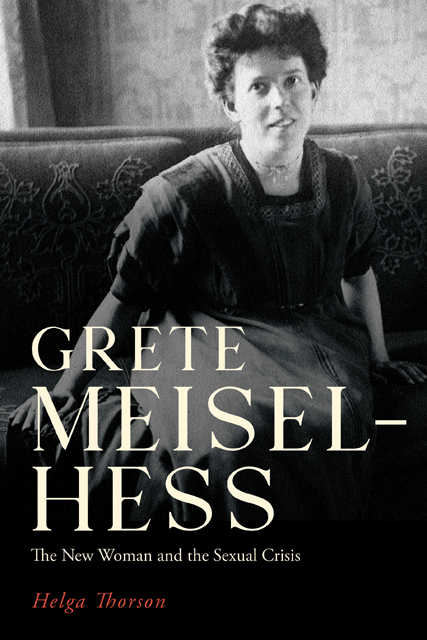Book contents
- Frontmatter
- Dedication
- Contents
- List of Illustrations
- Acknowledgments
- List of Abbreviations
- Introduction: Breaking with the Past, Forging the Future
- 1 The New Woman of the Early Twentieth Century
- 2 Feminism and Jewishness in Viennese Literary Modernism
- 3 Theorizing the Sexual Crisis through Journalism and Sexology
- 4 Effecting Change through Literature: Die Intellektuellen (1911)
- 5 Sexual Sociology during the First World War
- Conclusion: Living the Sexual Crisis
- Bibliography
- Index
3 - Theorizing the Sexual Crisis through Journalism and Sexology
Published online by Cambridge University Press: 11 January 2023
- Frontmatter
- Dedication
- Contents
- List of Illustrations
- Acknowledgments
- List of Abbreviations
- Introduction: Breaking with the Past, Forging the Future
- 1 The New Woman of the Early Twentieth Century
- 2 Feminism and Jewishness in Viennese Literary Modernism
- 3 Theorizing the Sexual Crisis through Journalism and Sexology
- 4 Effecting Change through Literature: Die Intellektuellen (1911)
- 5 Sexual Sociology during the First World War
- Conclusion: Living the Sexual Crisis
- Bibliography
- Index
Summary
After over a decade in Vienna, where she completed her schooling, audited courses at the University of Vienna, and built a reputation for herself as a speaker and a writer, Grete Meisel-Hess made a courageous life change and, as a single woman, picked up and relocated to a completely new urban setting in Berlin. This move made it possible for her to participate in the expanded opportunities available in the German capital city and seek out a lifestyle suited to her personal and professional interests as a New Woman. The initial move took place in 1906, becoming official two years later when she decided to give up her Viennese apartment and transport her remaining belongings to Berlin. During her time in Berlin, Meisel-Hess lived mainly in Charlottenburg, Schöneberg, Friedenau, and Steglitz: municipalities located to the west of Berlin proper that were later incorporated into the growing metropolis of Berlin in 1920. After her move to Berlin, Meisel-Hess became a regular patron of the Café des Westens, known affectionately as the Café Größenwahn (delusions of grandeur café or the café megalomania), on the Kurfürstendamm in Charlottenburg until it closed its doors in 1915. There she engaged in animated discussions with other writers and intellectuals at the time and made networking connections that helped her set herself up as a journalist, such as interacting with Franz Pfemfert, who is known to have founded and edited the literary and political journal Die Aktion in the Café des Westens itself. After living in a number of rooms and boarding houses during her initial years in Berlin, Meisel-Hess eventually secured her own apartment, but she continued to move residences quite frequently in the years following her second marriage, choosing to remain in either Friedenau or Steglitz.
It is more than likely that Meisel-Hess was still in a relationship with Victor Tausk when she first moved to Berlin in 1906. Tausk, who had been living in Berlin since the start of the year in 1906, lived on and off in Berlin until he moved back to Vienna in 1908 to study psychoanalysis under Freud, while simultaneously starting his medical studies. His “intermezzo” with Meisel-Hess, as Victor’s spouse Martha Tausk called it, was over for certain by early 1907.
- Type
- Chapter
- Information
- Grete Meisel-HessThe New Woman and the Sexual Crisis, pp. 96 - 137Publisher: Boydell & BrewerPrint publication year: 2022



